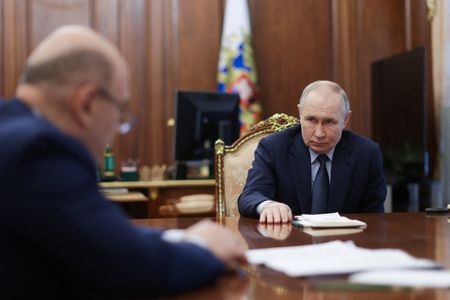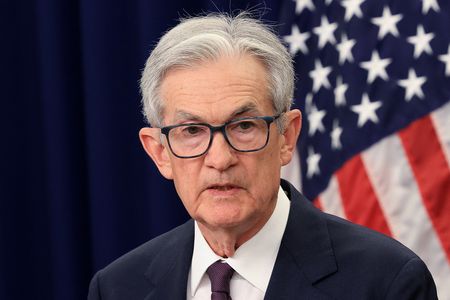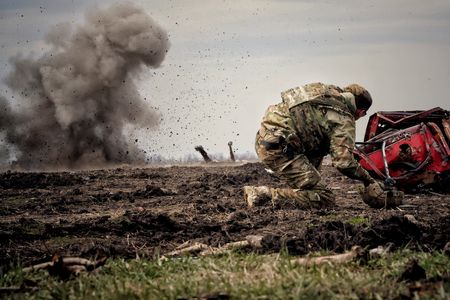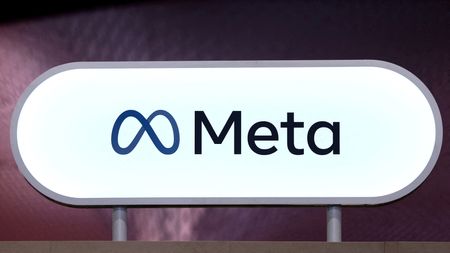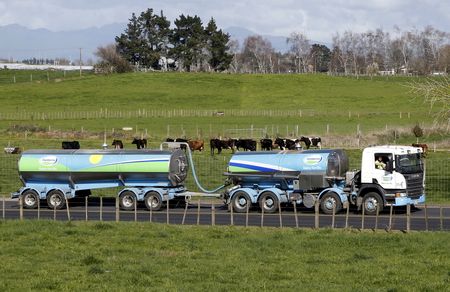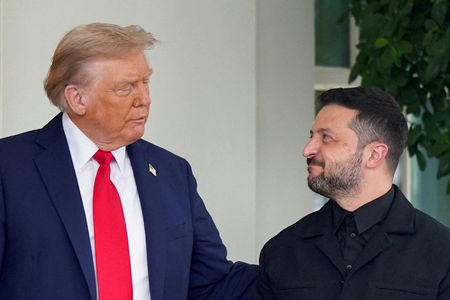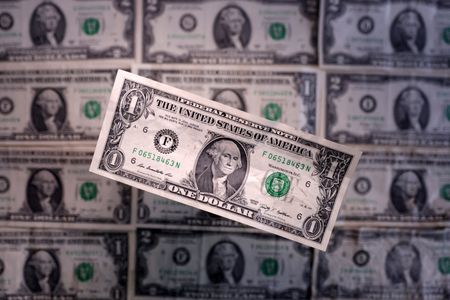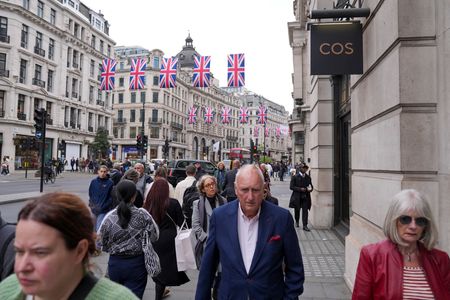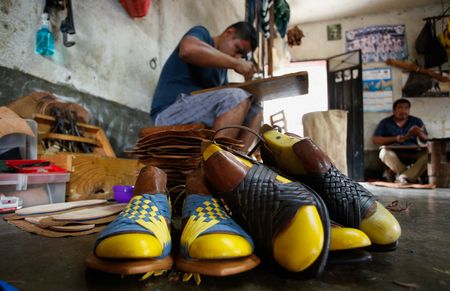By Darya Korsunskaya and Gleb Bryanski
MOSCOW (Reuters) -High inflation is the key challenge for the Russian economy in 2025, while the economic growth rate is expected to fall from 4.1% recorded last year, Prime Minister Mikhail Mishustin told President Vladimir Putin on Friday.
Consumer prices grew by 9.5% in 2024 and have continued to climb this year, reaching 9.9% on an annual basis. Inflation has been fuelled mainly by massive state spending over the last three years to finance the war in Ukraine and the military-industrial complex.
“It is absolutely clear that the main challenge is inflation,” Mishustin told Putin at a meeting in the Kremlin, as he reported full-year statistics for 2024.
Inflation has become the main headache for Russia’s economy and for consumers, who have seen prices for staple foods such as butter, eggs and potatoes rise by double-digit percentages in supermarkets.
The central bank hiked its benchmark interest rate to 21% last October, the highest level since the early 2000s, to bring inflation rates down but paused at the last meeting in December after complaints from businesses about high borrowing costs.
“Our task, first and foremost, is to transition to a very responsible fiscal and macroeconomic policy in collaboration with the Bank of Russia,” Mishustin said, in a veiled reference to two budget deficit increases last year.
“The economic growth next year may not be as significant, but it is very important to stop inflation and do everything necessary to ensure long-term economic growth based on a stable macroeconomic situation,” he added.
BALANCED GROWTH
Mishustin said the economy grew by 4.1% in 2024, slightly better than the official forecast of 3.9%, with industrial output growth at 4.6%, driven by the manufacturing sector, where growth reached 8.5%.
Many economists, including some working with the government, say that industrial growth is mainly concentrated in military-related sectors, while many civilian industries are stagnating.
The central bank is forecasting that growth rates will come down to 0.5% to 1.5% next year as the economy cools down. High interest rates, along with labour shortages, have strained the economy in recent months.
Putin called on the government to ensure “balanced growth” and to bring down inflation rates.
“The task for the current year is to get on a path of balanced growth and achieve a reduction in inflation,” Putin told Mishustin, asking him to provide a plan for structural changes in the economy.
Putin noted, however, that Russian economic growth was better than what he referred to as growth in “so-called developed countries,” citing lower 2024 growth figures for the United States, Germany, and France.
“It can be said that the country’s economy has successfully coped with unprecedented sanction pressure, unlike many countries that imposed sanctions against us,” Mishustin responded.
($1 = 97.0000 roubles)
(Reporting by Gleb Bryanski and Darya Korsunskaya; Editing by Sharon Singleton)

